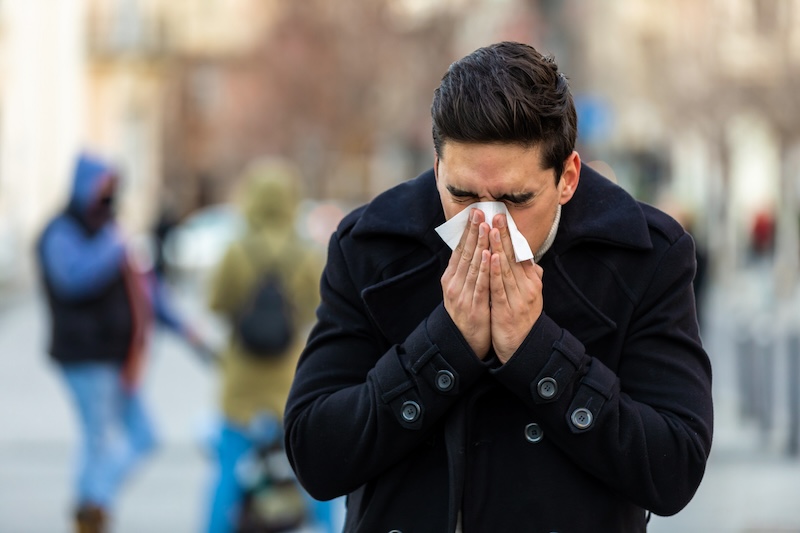“But, it’s winter. Shouldn’t my allergy symptoms be gone?”
If you struggle with seasonal allergies, you may dream of the winter months when you’re given a break from the consistent runny nose and itchy eyes. After all, unless you live in a very warm area, there are not a lot of blooming plants and flowers in the winter, and you’re probably spending much more time inside.
But, some allergy sufferers are surprised when the winter months roll around and they’re still battling the same symptoms. Why?
Well, you may be allergic to more than just the common springtime seasonal allergies like pollen, grass, or weeds. Luckily, there are some steps you can take to mitigate your symptoms, and they are very similar to what you might do in the spring, summer, and fall for allergies.
The most common winter allergies
If you live in a warmer, more tropical climate, where grass and plants grow year-round, your winter allergies may be the same as your spring or fall allergies, as pollen continues to circulate in the air.
But, if you live in a colder or more temperate climate — like most of the United States population — pollen probably isn’t the cause of your winter allergy symptoms.
There are a few allergens that can cause allergic reactions at any time of year but may be worse in the winter as we spend more time inside and the air we breathe is drier. When air is drier, our nasal passages and skin become drier, making it harder for us to keep allergens from entering our bodies and triggering a reaction.
Here are three of the most common winter allergies to watch for:
- Pet Dander: Anywhere from 10% to 20% of the world’s population is allergic to cats or dogs, two of the most common house pets. And, when we’re spending more time inside with our pets during the winter months, we may be inhaling more of their dander — skin flecks containing certain proteins that cause allergic reactions — leading to allergy symptoms.
- Dust & Dust Mites: An estimated 20 million Americans suffer from a dust mite allergy, and, since every home has dust mites (at least to some extent), this is one of the more common winter allergens. While you may notice symptoms of dust allergies year-round, too, they can be more noticeable in the winter as we blast the heat and spend more time inside.
- Mold: Though certain types of mold can be toxic to anyone, about 10% of people are allergic to mold, and 5% show symptoms of the allergy when exposed. Similarly to pet dander and dust, mold can exist in our homes at any time of the year, but prolonged exposure during the winter can make symptoms much worse.
How to manage winter allergy symptoms
Suffering from itchy eyes, runny nose, coughing, and other allergy symptoms can certainly be annoying in the winter, and, with the seasonal uptick in illnesses like the cold and flu, it can be hard to differentiate allergy symptoms from symptoms of an underlying infection.
But, there are some steps you can take to manage your winter allergies to make the season a little more bearable:
- Dust and vacuum
- Wash exposed fabric, like bedding, curtains, and pillows
- Keep an eye on your air filters, and replace them when they’re dirty
- Keep bathrooms and other damp spaces well-ventilated to prevent mold
- Brush and bathe your pets
- Try an air purifier
And, when all else fails, over-the-counter antihistamines can help manage those daily symptoms — just like in the spring.
–
Ready to curb your winter allergy symptoms once and for all? Try allergy immunotherapy!
While antihistamines and proactive cleaning can be useful, short-term solutions for those suffering from winter allergies, neither over-the-counter medication nor some more frequent vacuuming can address the source of your allergy symptoms — the allergy itself.
But, there are several options to address the underlying allergy you may be struggling with and help get rid of symptoms more permanently: allergy immunotherapy (or allergy injections) and allergy drops.
If you’re interested in seeing if allergy immunotherapy or allergy drops are right for you, ask your primary care doctor if they’re using Allercare’s innovative allergy testing and treatment system or see if they can refer you to a board-certified allergist.
And, if you’re a physician looking to help your patients suffering from allergies, contact Allercare today.

